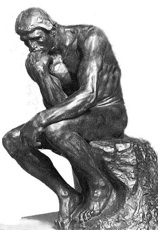 James Emery White’s , in his new book ( Christ Among the Dragons: Finding Our Way Through Cultural Challenges
James Emery White’s , in his new book ( Christ Among the Dragons: Finding Our Way Through Cultural Challenges), zeroes in the issue of civility.
We looked at one treatment of the theme Wednesday and today we look at a second one: polarizations within the church.
What are you doing to reduce polarizations of the One Church in your community? What do you think are the signs that a church is divisive? one that is unifying?
These polarizations divide the Church. He sees four major ones:
1. Calvinism vs. Arminianism
2. Traditional vs. contemporary modes of ministry.
3. Modern vs. Postmodern
4. Activist opposition to private immorality vs. civic concern with social justice and environment. [I’m not sure what that first one in number four means.]
Here’s his strongest statement about #1: “When Calvinists say that Arminians believe in universalism, or Arminians say that Calvinists reject evangelism, we are not being fair. When one side or another lays claim to the term Reformed, as if the other side is either Roman Catholic or against the Reformation ideals, we not being accurate, as both flow from the Reformation. When we condescendingly say our position is simply the ‘gospel,’ as it’s not really a debate worth having, then we are being arrogant. When we make our position the litmus test of orthodoxy, or even community, we are being neither gracious nor loving. When we say that our view alone upholds God’s sovereignty or that our perspective is the only one that cares about lost people, we are not being truthful. When we exhibit a haughty smirkiness, or we so state our position that we divide churches, student ministry groups or denominations, then we are sinning” (127).
Why is this happening? White sees three reasons:
1. Misplaced missional energy
2. Pride
3. Fear

